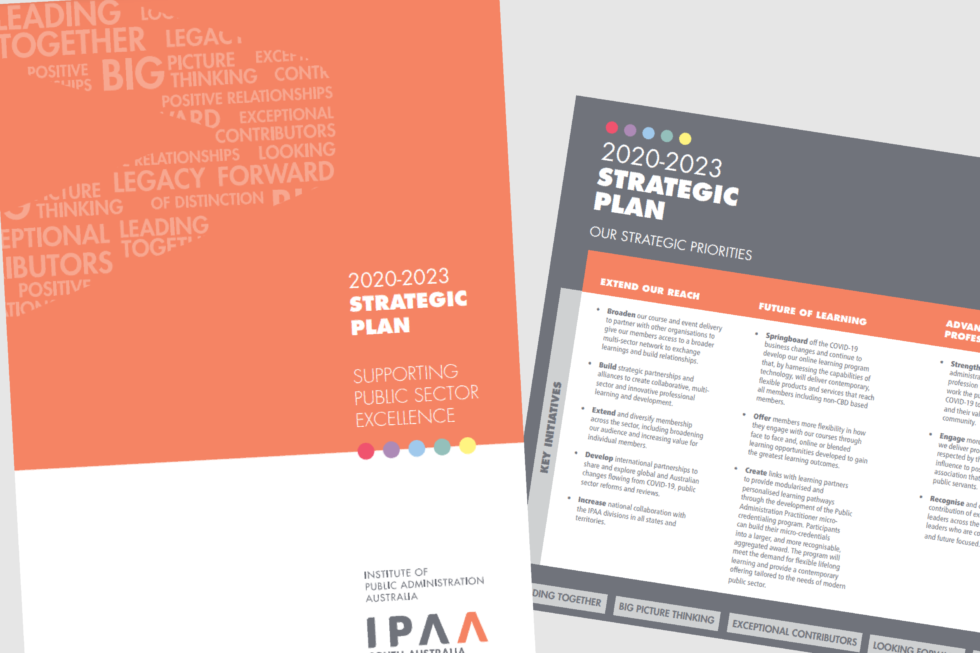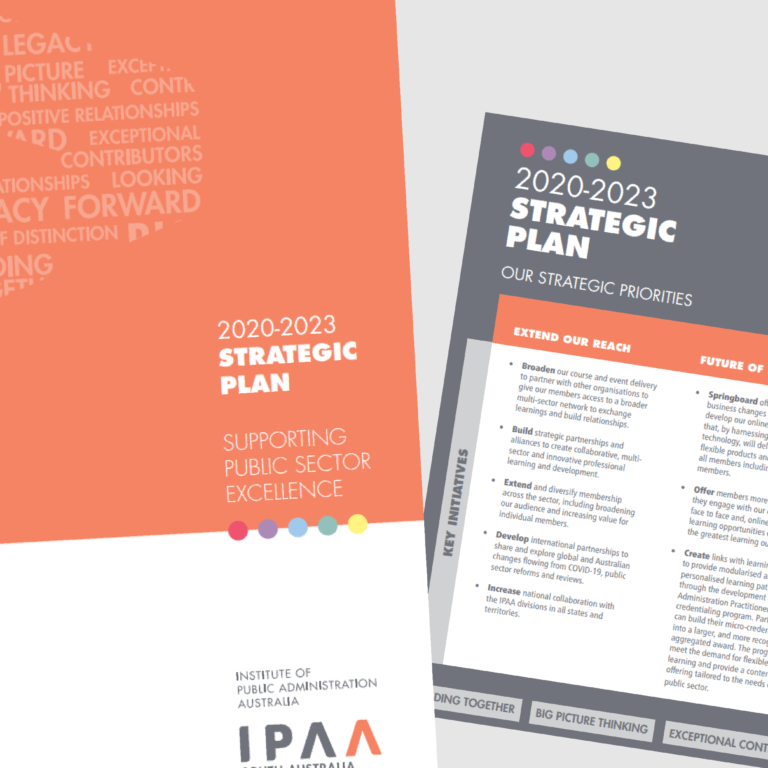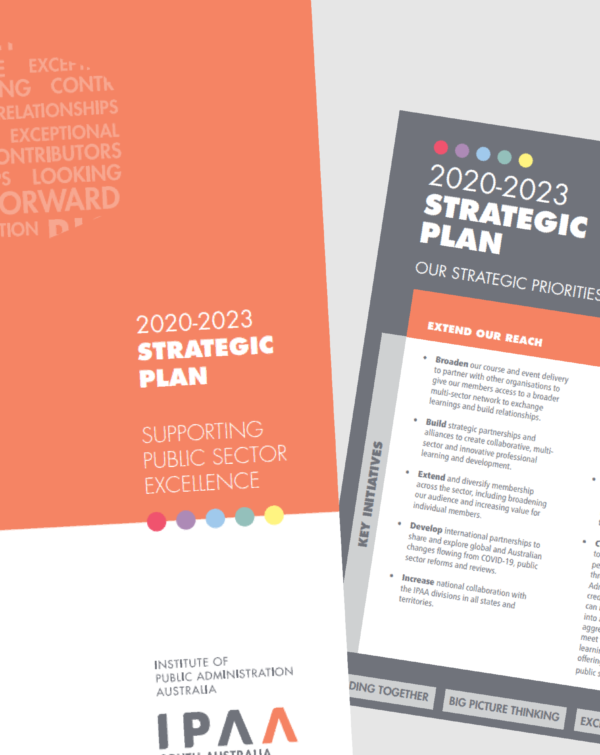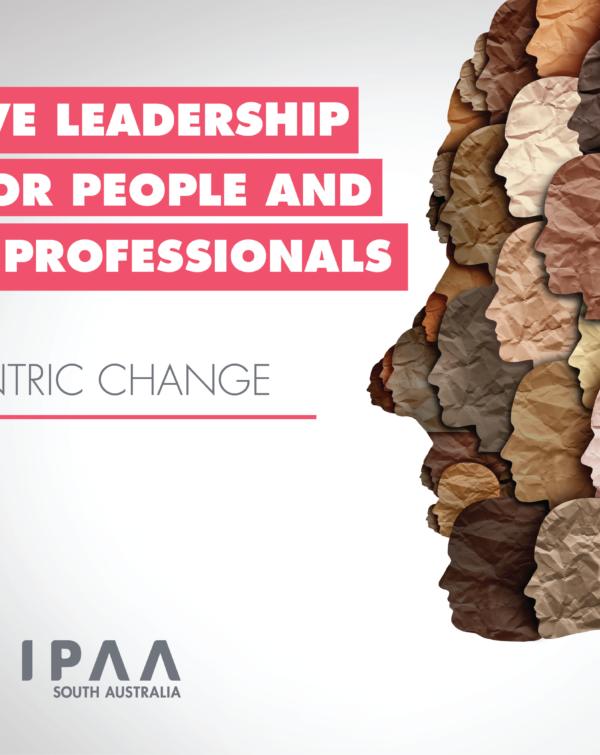
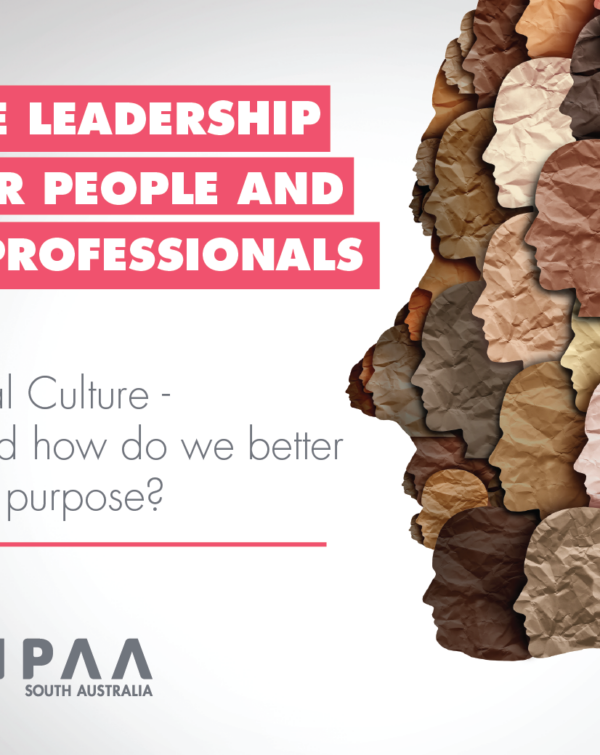
The 2021 ‘Premier’s Excellence Awards and Address’ celebrated outstanding achievements within the South Australia Public Sector, this year particularly showcasing the exceptional efforts during the state’s emergency response. During this event the Hon. Steven Marshall also delivered his address to the public sector, sharing more on the state’s COVID-19 recovery and how we can all move forward with purpose.
The event was MCd by Commissioner Erma Ranieri PSM FIPAA who shared her enthusiasm and praise for how our public sector rose to the challenges of recent times.
“My number one task today is to acknowledge and thank the public service in South Australia for the outstanding job they have done with those three – major, very impactful events that have hit our state”
The Hon. Steven Marshall noted some of the extraordinary circumstances that we found ourselves in during late 2019 and 2020, with first the devastating bushfires in both Kangaroo Island and the Adelaide Hills and then a subsequent global pandemic. He shared his pride in the public sector’s response to these challenges, as well as the fact that trust in our government is at an all-time high.
Premier Marshall shared that the exemplary efforts of the sector have enabled our state to move forward economically and socially and that “we now have more people employed and we have more wages paid now than pre Coronavirus”. He also highlighted some of the many examples of the ways in which our sector has moved with greater adaptability and mobility, such as in the delivery of education throughout 2020.
The State’s budget for recovery was also explored during his address, with the Premier sharing his enthusiasm for the largest infrastructure spend in the history of the state – providing a needed boost to jobs and the economy. Affordable housing, school development and investment in innovative projects were other areas that were also highlighted as key in our recovery.
Finally, Premier Marshall shared some of the reforms that had come about as a result of the previous ‘I Work for SA Your Voice Survey’. The results of this survey saw an improved emphasis on nurturing Indigenous leadership in the public sector, as well as increasing the number of indigenous people employed in the sector. With the latest YourVoice survey launching after on Tuesday, 27 April , the Premier encouraged all state government employees to take part and share their opinions.
On behalf of IPAA SA and our Divisional Council we would like to offer our congratulations to the outstanding winners and finalists. The whole of the SA public service has gone above any beyond during these challenging times and we hope that everyone across the sector can take away a sense of pride and accomplishment in what has been acheived.
Recognises an individual or team’s exemplary service to the community of South Australia. Their program, service or initiative has had a far-reaching, positive impact.


Recognises an individual or team’s exemplary service to the community of South Australia in an emergency. Their program, service or initiative has had a far-reaching, positive impact.


Recognises an individual or team’s demonstration of the South Australian public sector values in their service delivery.


The 2021 ‘Premier’s Excellence Awards and Address’ celebrated outstanding achievements within the South Australia Public Sector, this year particularly showcasing the exceptional efforts during the state’s emergency response. During this event the Hon. Steven Marshall also delivered his address to the public sector, sharing more on the state’s COVID-19 recovery and how we can all move forward with purpose.
The event was MCd by Commissioner Erma Ranieri PSM FIPAA who shared her enthusiasm and praise for how our public sector rose to the challenges of recent times.
“My number one task today is to acknowledge and thank the public service in South Australia for the outstanding job they have done with those three – major, very impactful events that have hit our state”
The Hon. Steven Marshall noted some of the extraordinary circumstances that we found ourselves in during late 2019 and 2020, with first the devastating bushfires in both Kangaroo Island and the Adelaide Hills and then a subsequent global pandemic. He shared his pride in the public sector’s response to these challenges, as well as the fact that trust in our government is at an all-time high.
Premier Marshall shared that the exemplary efforts of the sector have enabled our state to move forward economically and socially and that “we now have more people employed and we have more wages paid now than pre Coronavirus”. He also highlighted some of the many examples of the ways in which our sector has moved with greater adaptability and mobility, such as in the delivery of education throughout 2020.
The State’s budget for recovery was also explored during his address, with the Premier sharing his enthusiasm for the largest infrastructure spend in the history of the state – providing a needed boost to jobs and the economy. Affordable housing, school development and investment in innovative projects were other areas that were also highlighted as key in our recovery.
Finally, Premier Marshall shared some of the reforms that had come about as a result of the previous ‘I Work for SA Your Voice Survey’. The results of this survey saw an improved emphasis on nurturing Indigenous leadership in the public sector, as well as increasing the number of indigenous people employed in the sector. With the latest YourVoice survey launching after on Tuesday, 27 April , the Premier encouraged all state government employees to take part and share their opinions.
On behalf of IPAA SA and our Divisional Council we would like to offer our congratulations to the outstanding winners and finalists. The whole of the SA public service has gone above any beyond during these challenging times and we hope that everyone across the sector can take away a sense of pride and accomplishment in what has been acheived.
Recognises an individual or team’s exemplary service to the community of South Australia. Their program, service or initiative has had a far-reaching, positive impact.
Recognises an individual or team’s exemplary service to the community of South Australia in an emergency. Their program, service or initiative has had a far-reaching, positive impact.
Recognises an individual or team’s demonstration of the South Australian public sector values in their service delivery.
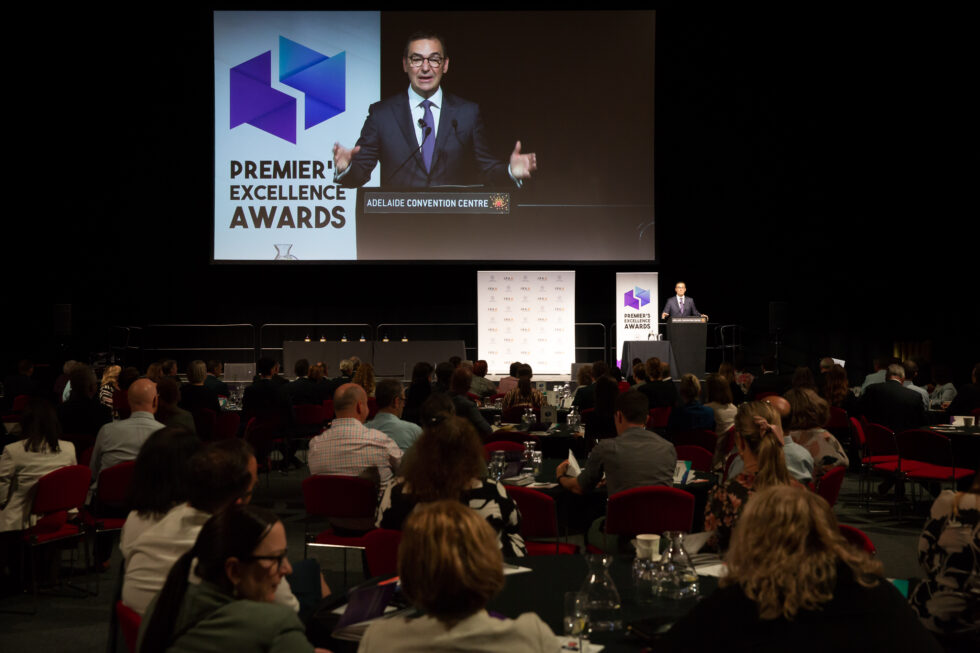
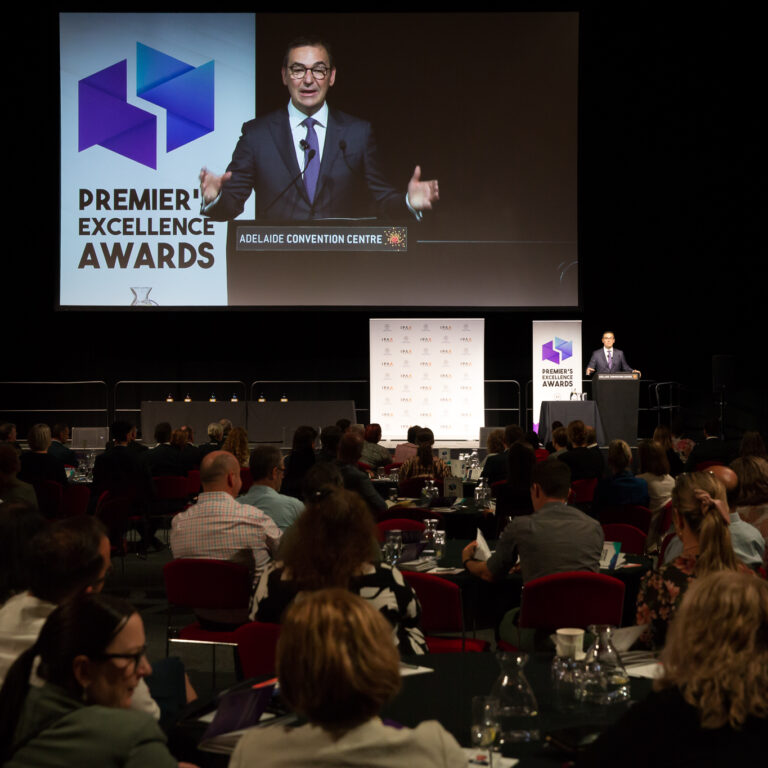
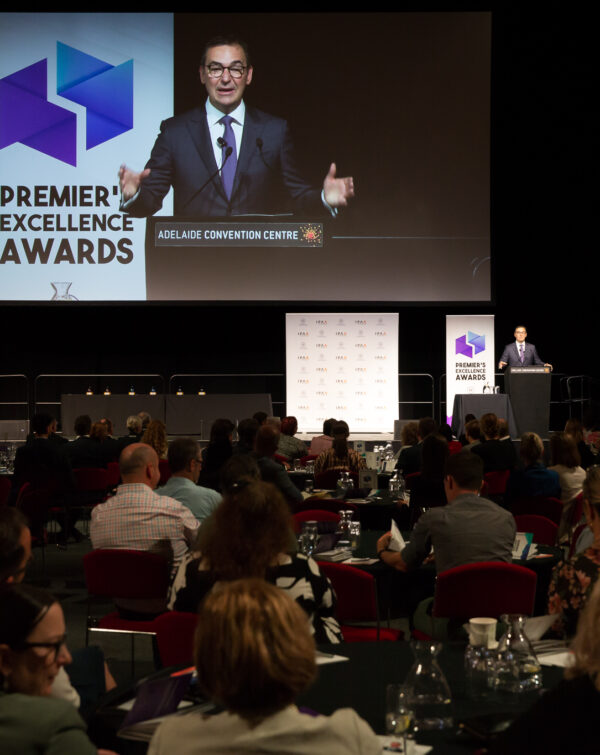
“The test of people’s integrity comes, not through their successes, but when we are presented with failure, or challenge, or temptation.”
Commissioner Ann Vanstone QC joined IPAA SA in her first address to the broader public sector, in her role as Independent Commissioner Against Corruption, speaking to the topics of integrity and accountability and what this means for the public sector. With the Office for Public Integrity (OPI) and the ICAC now well established, expert staff of the OPI assess complaints and reports relating to allegations of corruption, misconduct or maladministration within South Australia’s public administration.
As highlighted by the Commissioner Only a fraction of the 1,200 plus complaints and reports that the OPI receives each year become the subject of an ICAC investigation, with many matters referred back to agencies for internal investigation. The core focus of the ICAC is addressing corruption. Commissioner Vanstone shares the need to dispel some of the misrepresentation and mystery around the purpose and functions of the ICAC
As described by the Commissioner, the ICAC serves multiple purposes, and highlights that for public servants, the ICAC is “your partner and not your enemy”. As well as addressing and investigating corruption the ICAC is a vital body in helping improve integrity culture across the sector. As noted by the Commissioner “we are not here to catch people for mistakes or minor transgressions… we are only interested when integrity failings are so grave that criminal conduct is occurring or may occur”.
The ICAC performs an essential role in protecting the culture of integrity for all public officers and as summarised by Commissioner Vanstone “you are here to report corruption and I am here to deal with it”.
“It’s the unsung acts of everyday reliability, credibility and account that imbue public administration with the integrity it needs.”
Commissioner Vanstone notes that we are all faced with challenges that will test our integrity and accountability. For anyone entrusted with public office and working for the public interest, effort must be made to act continuously and reliably in the best public interest. The ICAC plays a role in educating public officers on how to act with integrity, as well as in preventing corruption.
As part of this event audience members were invited to submit their questions to Commissioner Vanstone. The Q&A portion was led by Chief Executive, Attorney-General’s Department, Caroline Mealor, who along with exploring some of her own questions for the Commissioner, delivered the questions of public sector employees from across the sector.
As Commissioner Vanstone highlighted during this event, her ability to investigate corruption arrives from public officers coming forward and reporting. If you would like some further information on your reporting obligations, how to make a report or to ask any further questions the below resources may be helpful to you.
“The test of people’s integrity comes, not through their successes, but when we are presented with failure, or challenge, or temptation.”
Commissioner Ann Vanstone QC joined IPAA SA in her first address to the broader public sector, in her role as Independent Commissioner Against Corruption, speaking to the topics of integrity and accountability and what this means for the public sector. With the Office for Public Integrity (OPI) and the ICAC now well established, expert staff of the OPI assess complaints and reports relating to allegations of corruption, misconduct or maladministration within South Australia’s public administration.
As highlighted by the Commissioner Only a fraction of the 1,200 plus complaints and reports that the OPI receives each year become the subject of an ICAC investigation, with many matters referred back to agencies for internal investigation. The core focus of the ICAC is addressing corruption. Commissioner Vanstone shares the need to dispel some of the misrepresentation and mystery around the purpose and functions of the ICAC
As described by the Commissioner, the ICAC serves multiple purposes, and highlights that for public servants, the ICAC is “your partner and not your enemy”. As well as addressing and investigating corruption the ICAC is a vital body in helping improve integrity culture across the sector. As noted by the Commissioner “we are not here to catch people for mistakes or minor transgressions… we are only interested when integrity failings are so grave that criminal conduct is occurring or may occur”.
The ICAC performs an essential role in protecting the culture of integrity for all public officers and as summarised by Commissioner Vanstone “you are here to report corruption and I am here to deal with it”.
“It’s the unsung acts of everyday reliability, credibility and account that imbue public administration with the integrity it needs.”
Commissioner Vanstone notes that we are all faced with challenges that will test our integrity and accountability. For anyone entrusted with public office and working for the public interest, effort must be made to act continuously and reliably in the best public interest. The ICAC plays a role in educating public officers on how to act with integrity, as well as in preventing corruption.
As part of this event audience members were invited to submit their questions to Commissioner Vanstone. The Q&A portion was led by Chief Executive, Attorney-General’s Department, Caroline Mealor, who along with exploring some of her own questions for the Commissioner, delivered the questions of public sector employees from across the sector.
As Commissioner Vanstone highlighted during this event, her ability to investigate corruption arrives from public officers coming forward and reporting. If you would like some further information on your reporting obligations, how to make a report or to ask any further questions the below resources may be helpful to you.
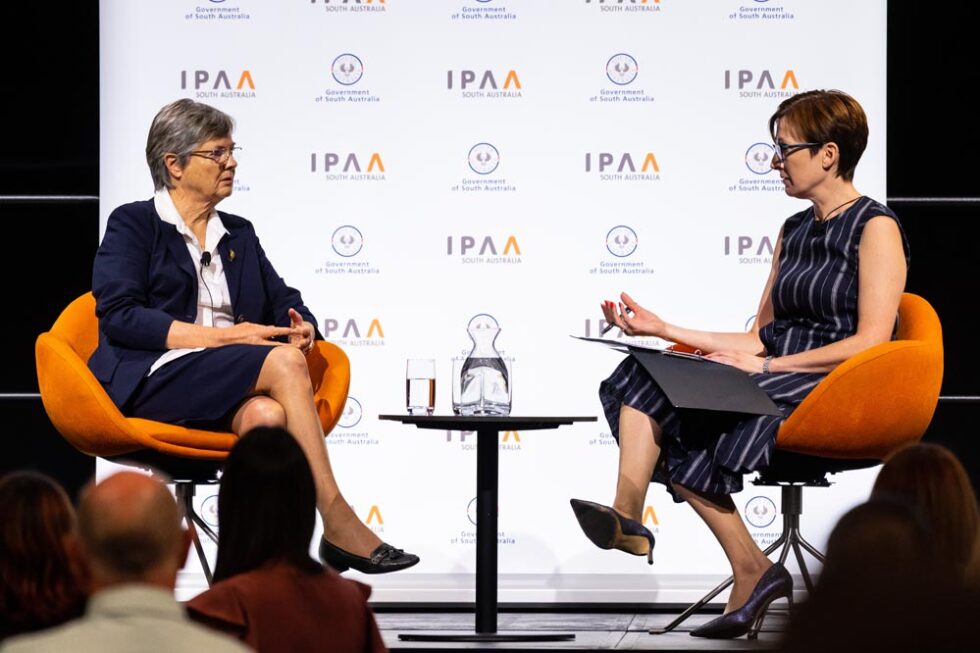
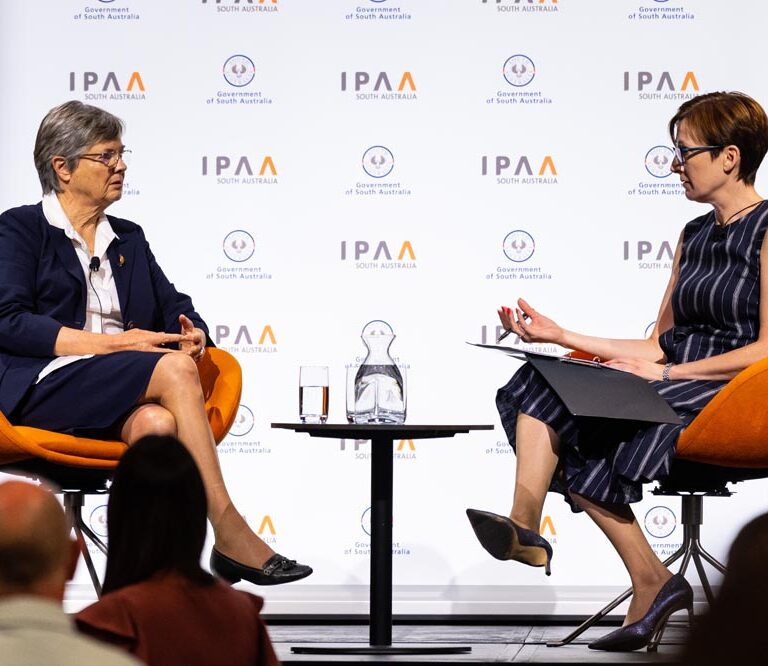
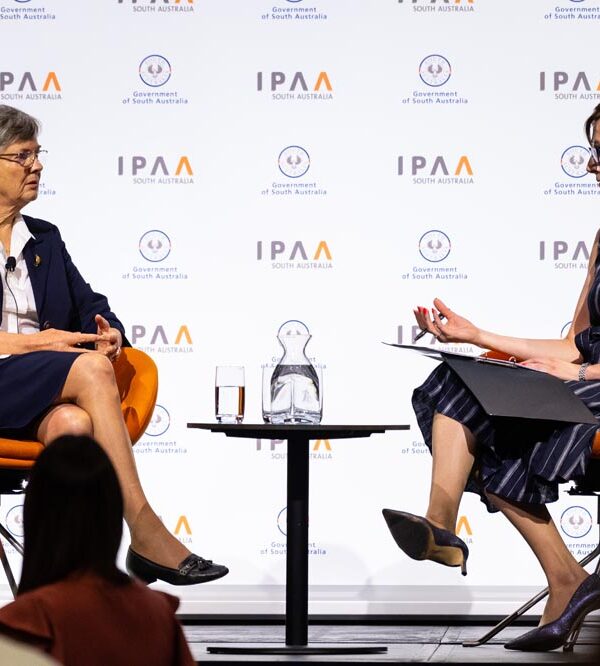
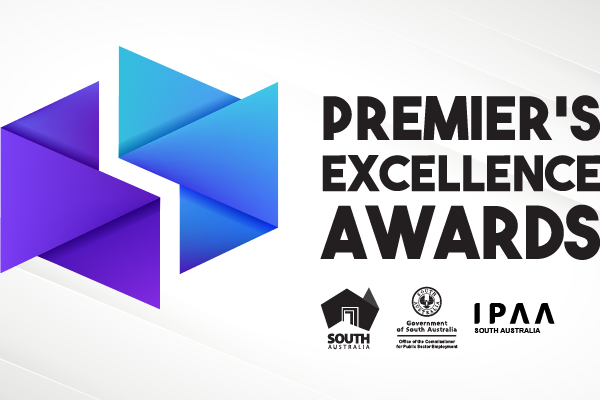
The outstanding service and contribution of Erma Ranieri has been recognised in the Australia Day 2021 Honours list with a Public Service Medal.
As Commissioner for Public Sector Employment at the Office of the Commissioner for Public Sector Employment with the South Australian Government Erma has consistently demonstrated an unwavering commitment to shaping the future of South Australia’s public sector by driving sector-wide reform.
Erma is a strong advocate for diversity and gender equality in leadership in the public sector, and she challenges barriers to drive innovative, collaborative and connected services for the South Australian community.
The citation accompanying her Meritorious Service Award reads “for outstanding public service to people management, and to public sector reform, in South Australia”.
IPAA South Australia Vice President and Chief Executive of the Department of Treasury and Finance David Reynolds said:
“Erma embodies the public service values through her commitment to the people who work within it. This award is well deserved recognition for her leadership and drive for reform.”
Erma Ranieri is the IPAA South Australia President, a long-serving member of IPAA’s National Council, and a National Fellow.
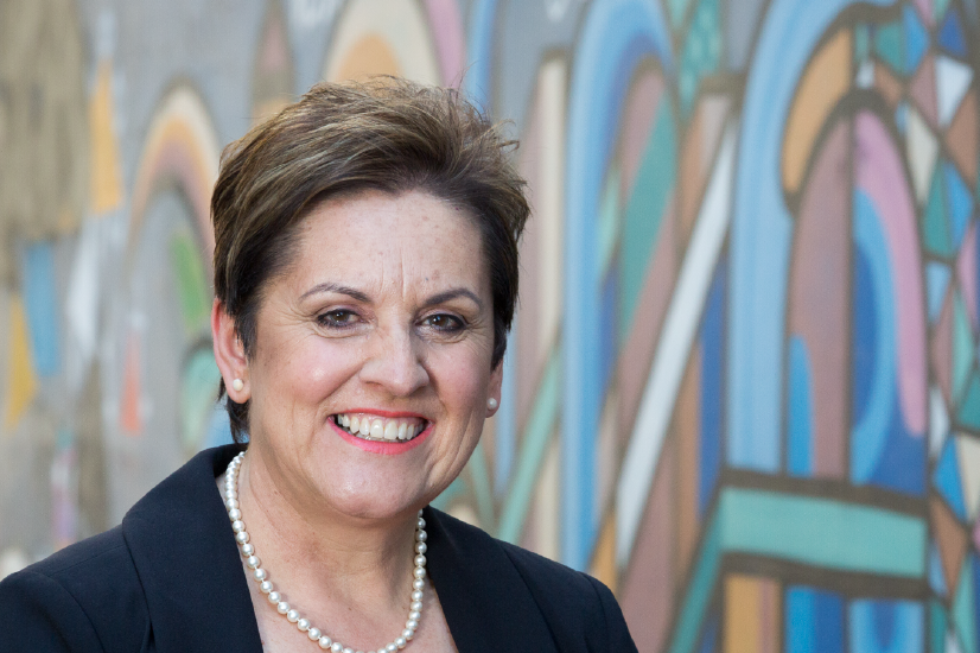
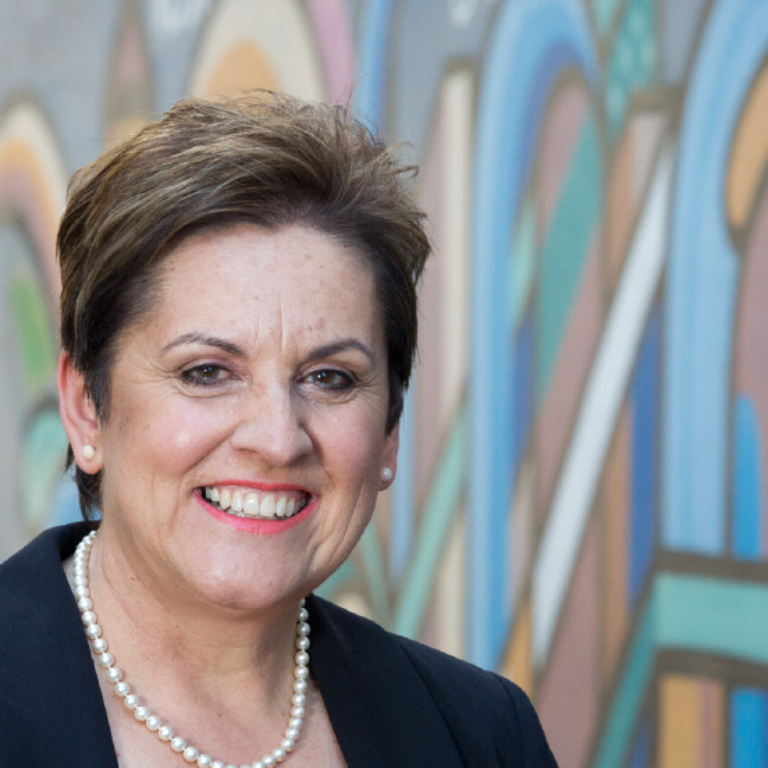
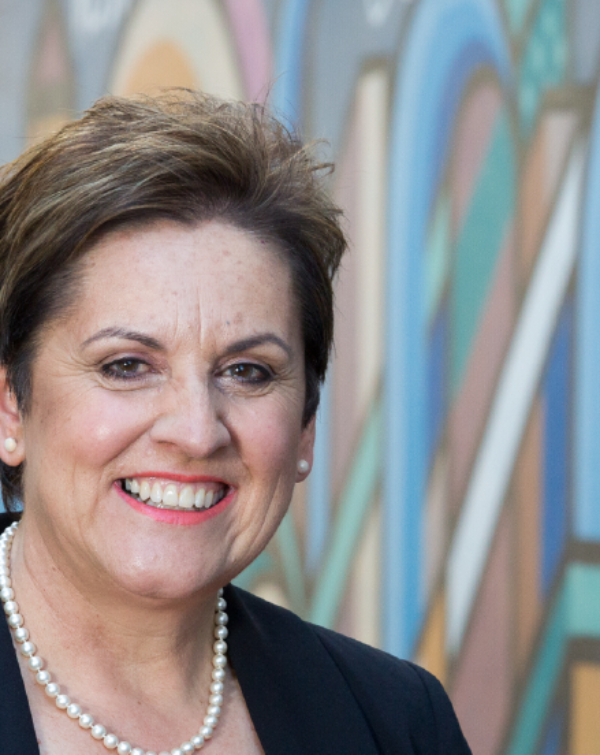

Even in the midst of these challenging times, it’s vital to keep looking forward. IPAA SA is dedicated to supporting you in your work in the South Australian public sector, which is why the IPAA SA Team and Divisional Council are proud to present our Strategic Plan for 2020-23.
Over the next two years IPAA SA will continue in our ongoing aim of ‘supporting the public sector’, and through consultation with our members, we have identified 4 key areas that we will grow in. These four areas, include a strong focus on learning from the challenges of 2019 and 2020, from the bushfires that ravaged our state, to the ongoing COVID-19 pandemic. We are privileged to be working with a public sector that has risen, above and beyond in meeting these challenges, and with the future insight, we hope to leverage these opportunities to support the public sector in whatever new challenges may emerge.
As we exist solely for our members and to best serve the needs of the public sector your input is essential in implementing our Strategic Plan. We hope that you will contribute by sharing your input in a short survey.
